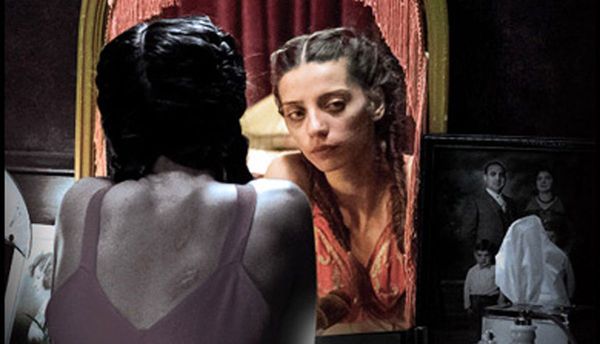Eye For Film >> Movies >> 1915 (2015) Film Review
1915
Reviewed by: Jennie Kermode

One hundred years ago, a process began which saw over a million Armenians shot, starved, drowned, burned, poisoned, gassed or beaten to death in the world's first recorded genocide. The anniversary has sparked a renewed interest in commemoration of the events, but here directors Hovannisian and Mouhibian have set out to do something different - to talk not just about what their people suffered but about what it means to remember.
This is addressed through the medium of a play and the dramas both within and around it. Like the recent Birdman, it explores directorial obsession, the vulnerability and egotism of actors and the difficulties inherent in invoking reality through layers of deception. It has many of the same flaws. The staginess of the action might be considered appropriate in context but isn't helped by a heavy-handed script. The scale of the protests going on outside the theatre suggest an elevated sense of self-importance, and the numerous twists and obfuscations can't conceal the fact there isn't really very much plot. Wht there is hinges on the fact that the play's director, Simon (Simon Abkarian) seems to have an ulterior motive, one which is connected his tormented wife (Angela Sarafyan) and a secret they have kept from the rest of the cast.
Underlying this are musings on the nature of theatre, especially where it concerns itself with true stories. It is suggested that the ghosts of the genocide victims are using the actors as vessels through which to tell their stories. Is it time these tormented souls were allowed to rest? One actor suggests that fiction should give them the happy ending they were denied in reality, recalling Joe Wright's take on Atonement. Simon is obsessed with the notion of facing reality, including the things people did to survive that their descendents now find shameful - remembering them not as heroes but as real people. He seeks to give his wife a moment of catharsis that he may be denying to himself.
Despite its narrative clumsiness, 1915 does an impressive job of balancing different perspectives and concerns around the issue of remembrance, perhaps seeking to provoke more open dialogue on the subject. Those not already familiar with the historical events may find it difficult to get into but its central ideas have a relevance that goes beyond the Armenian community and that connects large scale tragedies with personal ones. Its intercutting of stills captured during the genocide ensures that it retains a weight that goes beyond the theatrics centre stage.
Reviewed on: 25 Apr 2015
















